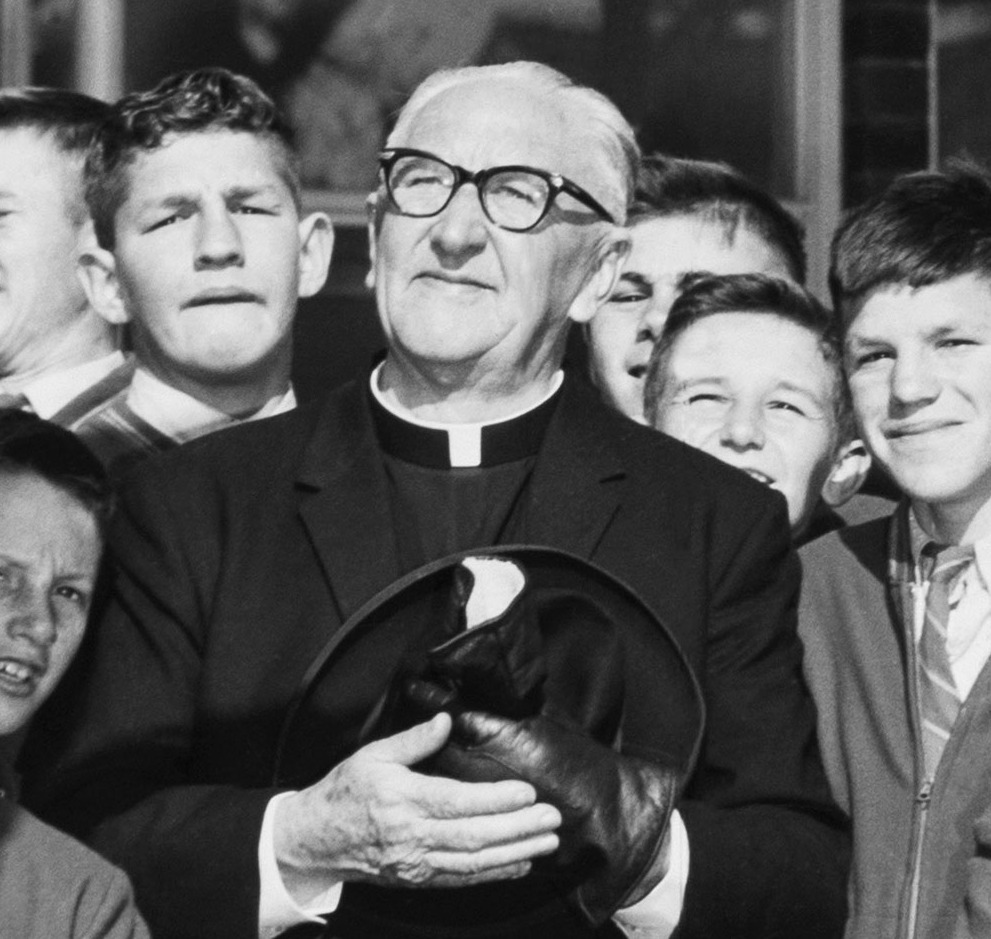About Father Thomas Dunlea
Father Thomas Dunlea was an Irish-Australian Catholic priest, known for his work with vulnerable youth and people struggling with alcohol dependency.
In the 1930s, after discovering that some of his parishioners were living rough, he set about caring for the homeless boys among them. In 1940, he established a permanent shelter which he named Boys’ Town. The shelter was renamed the Dunlea Centre in 2010 in Father Tom’s honour and continues to provide support services for young people.
Location
Accessibility
Category
Share and save

Father Thomas Dunlea begins his life in Sydney
Thomas Vincent Dunlea (Father Tom) was born on 19 April 1894 in Ballina, County Tipperary, Ireland. He trained for the Catholic priesthood at St Peter’s College, Wexford and set sail for Sydney in 1920 following his ordination.
In 1921, Father Tom was assigned to St Francis Catholic Church in Surry Hills, a few doors from the Albion Street children’s shelter. It is said that hearing a child at the shelter singing ‘I wish I had someone to love me’ sparked Father Tom’s enduring interest in providing care for underprivileged orphans.
Father Tom served in various inner-city parishes before being appointed parish priest for Sutherland in 1934. At this time, the area was still largely undeveloped bushland encompassing the Royal National Park and Father Tom traded his motor vehicle for a retired racehorse in order to make travel around the area easier.
The beginning of a legacy
After discovering that some of his parishioners were living rough in caves and makeshift huts, Father Tom began seeking a way to support the homeless boys among them.
He began by offering shelter at the presbytery. When numbers grew, he rented a home nearby before eventually moving the boys to the Royal National Park where they lived in tents until more permanent accommodation could be found. As word spread, Father Tom received a gift of 7 acres at Engadine. In 1940, he established a permanent shelter on this site, naming it ‘Boys’ Town’ after the 1938 Hollywood movie of the same name. The film was based on the true story of Father Edward Flanagan, who founded the original Boys’ Town in Nebraska in 1917.
Fostering local support
Following its example, Father Tom envisaged the shelter as being largely self-supporting and run by the residents themselves, with his oversight.
He said:
I want to make the venture dynamic and revitalise boys who, by certain unfortunate circumstances, have fallen into bad company or been left to stray through the loss of parents. The town is to be self-supporting, and self-governed.
His initiative won considerable local support. The bookmaker George Nathan organised a fundraising carnival with trotting, cycling, and midget-car racing that filled the Sydney Sports Ground every Sunday. Nathan raised 50,000 pounds for Boys’ Town over 6 years – a massive sum at the time.
More good works
In 1942, at Archbishop Norman Gilroy’s request, the De La Salle Brothers took charge of Boys’ Town. With the shelter in safe hands, Father Tom turned his attention to helping alcoholics. In 1944, he helped found a Sydney branch of Alcoholics Anonymous.
In 1953, he was appointed chaplain of the Matthew Talbot Hostel for destitute men, then located at Young Street, Circular Quay. Father Tom said daily Mass here and took a keen interest in the residents, many of whom were struggling with problem drinking.
In 1955, he went to Hurstville as a parish priest, where he remained until his death on 22 August 1970.
In honour of Father Tom, Boys’ Town (where Father Tom is buried) was renamed the Dunlea Centre in 2010. Today, it provides comprehensive support services to vulnerable girls as well as boys.
